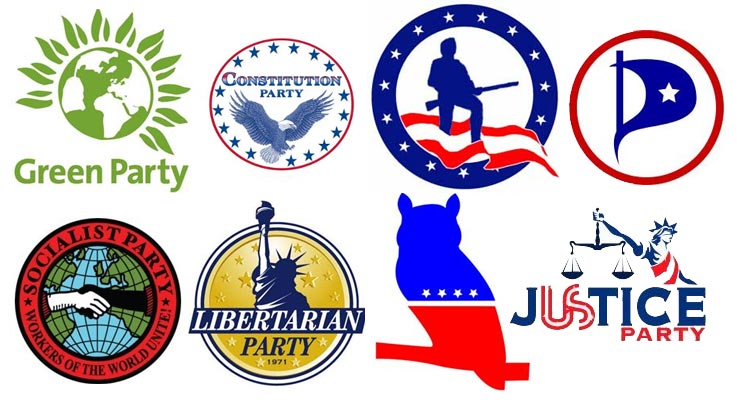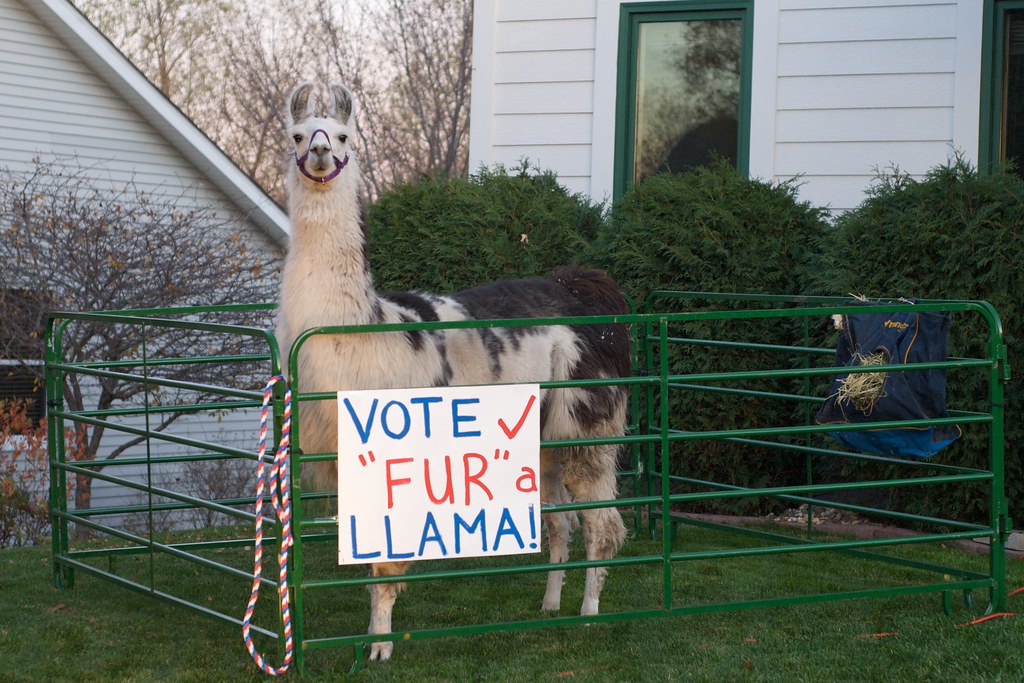More Americans than ever want a new third party to save us from the Big Two who seem increasingly bad at governing. Would it work?
Everywhere we look these days, there’s a crisis. There’s war in Europe as Ukraine and Armenia are fighting larger forces, a hot resurgence of the intractable conflict in the Middle East, and tens of smaller fights around the world that aren’t in our faces 24/7. The dominant economic system is cracking around the edges. Changes in the world’s climate patterns are ramping up in ways that signal worse is coming within our lifetimes. Millions of homes sit vacant during an affordable housing crisis. In a country that throws away 40% of its food supply, 1 in 8 kids go hungry. The list goes on, but neither of our two major political parties seems able to fix anything. Is it time for a new third party that can shake up the system from our local town halls all the way to Washington?
The clown show currently unfolding in the U.S. House of Representatives plainly shows that the Republican Party is incapable of governing itself, let alone the country, and shouldn’t be let anywhere near the reins of a world power. Their leading candidate for President is facing 91 criminal charges across four state and federal indictments and a generous docket of separate civil cases, and still can’t resist making menacing social media posts about court officials, witnesses, and New York Attorney General Letitia James, despite multiple limited gag orders.
Meanwhile, all the Democrats seem to be able to offer is lukewarm tweaks to the broken status quo. Then, they barely deliver on even those promises because they compromise with a far-right GOP in ways that keep ratcheting our country to the right. The rich get richer, corporations hold more power, everyday Americans suffer, and the changes we so desperately need are continuously pulled back like Lucy with Charlie Brown’s football. Democrats are a constant disappointment, a lesser evil, and they don’t even wield power as effectively or as ruthlessly as Team Red.
Both parties are “safe.” Some states are so gerrymandered that Republicans no longer have to court the public for votes; short of a judicial miracle, their hold on power is solid. Democrats can disappoint us with weaksauce policy every time, because what’s their base going to do, vote for Republicans? Perhaps “safe” is becoming too safe, and a new third party that appeals to pragmatic voters from all over the spectrum is a better way forward than increasing political violence.
Support for a new third party continues to grow.
A recent Gallup poll found that 63% of respondents agreed that the two major parties are doing such an awful job of governing that a new third party is necessary. This is up slightly from 62% in 2021 and 61% in 2017. In 2003, only 40% of American adults supported the creation of a new third party. On the whole, Republicans are more supportive of a new third party than are Democrats, though it’s not hard to see why.
The problem? In a winner-take-all system like ours, third parties tend to be spoilers that divide support for one of the two majors, insuring that no matter which of them wins, more people voted against the “greater evil” than for it. (Cynical donors understand this; witness how No Labels, a self-identified centrist third party that is expected to draw votes away from Biden in 2024, is attracting funding from large corporations and individuals who typically contribute to Republican candidates, and Clarence Thomas’s buddy Harlan Crow’s contribution to former Green Party candidate Cornel West’s independent campaign.)

Also, it’s not like there is a shortage of existing third parties to choose from. Why haven’t the two biggest smalls, the Libertarians and the Green Party, experienced more than modest victories in local elections? One reason may be that they only come out around election time, like mushrooms after a rain. If they want to build support, it would be nice to see third party candidates out in their communities, working materially toward the goals they advocate for politically. Perhaps the Greens could hold more river clean-ups or the Libertarians could sponsor days at the range for new gun owners. You don’t have to hold political office to be the change you want to see in the world.
Minority parties also face considerable challenges even getting on the ballot in many places. For example, an old Texas law requires candidates who didn’t get a certain level of votes in previous elections to instead gather a great many petition signatures from registered voters who then decline to participate in Democratic or Republican primaries. This takes funding and some level of staffing as well as popularity, things many would-be minority party candidates do not yet have.
Another likely obstacle holding back third parties is the voting system itself. In the winner-take-all system, people voting against a “greater evil” (rather than for one they truly support) must cast their ballot for the least awful candidate with the greatest chance of winning. Alternative systems exist, though, like instant runoff or ranked choice voting, which allow for a backup plan should one’s first choice not gain majority support. We could also opt for more proportional representation, allowing representatives to form coalitions after the election rather than before, as the two big-tent parties do now. All of these could create openings for a new third party, though, which is why the two major parties tend to oppose any changes to the system. They don’t want to lose their power.
While a new third party may find success in down-ballot races, presidential candidates running on a third party ticket, even if they win, would be unable to change very much in office.
A third party President would be able to sign or veto legislation passed by the other two parties in Congress. They could issue a few minor executive orders, perhaps, which would be reversed by the next officeholder. Without support in Congress and the approval of the courts, they’re not going to be able to enact an agenda that varies significantly from what we’re used to. In fact, since a truly effective, radically different third party would be a real threat to entrenched powers, they may well align against it, no matter what the voters prefer. It’s easier to agitate for change within a major party; remember, the Tea Party gave us the MAGA movement.
Finally, there’s the question of whether the converging crises of our time are best resolved, or even solvable at all, through the electoral process.
While they may appear to be unrelated, predicaments like the climate crisis, economic precarity, rising authoritarianism, resource depletion, biodiversity loss, massive debt and even looming conflicts have a root cause, despite most being unaware or unwilling to perceive it. It’s overshoot. When too large of a population consumes more resources than can be easily renewed and produces more pollution than can be absorbed by natural processes, problems start to mount. Problems grounded in overshoot manifest in multiple ways, all of which are converging now.
Solving overshoot, and thereby mitigating the effects of the polycrisis, would mean a severe cut in our consumption (and therefore our standard of living), a drastic population decline, or both; solutions which are all widely unpopular. At some level, both major parties understand at least part of this. It’s why Republicans talk about the over-the-top expense and inconvenience of transitioning to more ecological practices while pushing to exclude more and more people from the decision-making process and even citizenship, while Democrats advocate for family planning, more equitable wealth distribution, and environmental hopium like the Green New Deal. Any new third party that truly understands and effectively addresses overshoot would be the next bums voted out of office, post haste.
Do most people really want a new third party to save the world, or even the country? Or do they merely want more effective protection from the results of generations of bad decisions?
Related: Why Should You Bother Voting?


Join the conversation!